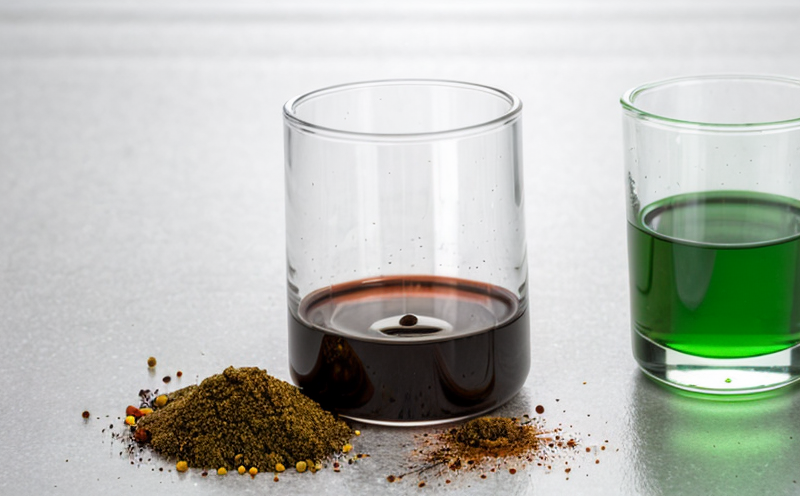OEC 225 Sediment Lumbriculus Reproduction Test Validation Method Development Test
The OECD 225 Sediment Lumbriculus Vulgaris Reproduction Test is a standardized method used to assess the potential adverse effects of substances on sediment-dwelling organisms, specifically lumbriculids. This test is crucial for evaluating chemicals and effluents that may enter aquatic environments through water runoff or direct discharge from industrial processes. Lumbriculids are small, non-segmented worms that play a significant role in the decomposition of organic matter in sediments.
The OECD 225 test follows international guidelines to ensure consistency across different laboratories and jurisdictions. It is part of a broader suite of tests designed to assess ecological risks associated with chemical substances. The lumbriculids used for this test are typically Lumbriculus variegatus, which are sensitive indicators of environmental stress.
The primary objective of the OECD 225 test is to validate the efficacy of a proposed method or procedure before it can be officially recognized by regulatory bodies such as the Organization for Economic Co-operation and Development (OECD). Validating new methods ensures they meet rigorous scientific standards, thereby enhancing reliability and consistency in ecological risk assessments.
The test involves exposing lumbriculids to samples containing the substance under investigation. The test duration is typically 21 days, during which the reproduction rate of the worms is monitored as an indicator of potential toxicity. Specific endpoints include the number of offspring produced by each female worm and their overall survival rates.
Accurate specimen preparation is critical for reliable results. Specimens must be acclimated to the test conditions before exposure to avoid confounding factors that could affect reproduction rates. Proper control groups are essential to compare against treated samples, ensuring accurate interpretation of any observed effects.
Instrumentation used in this testing includes precise scales for measuring initial and final weights of the lumbriculids, incubators set at controlled temperatures (typically around 20°C), and water quality monitoring equipment to ensure consistent conditions throughout the test period. Reporting must adhere strictly to OECD guidelines, detailing all procedural steps taken and results obtained.
Testing conducted according to this method provides valuable insights into the environmental impact of various substances. It helps regulatory agencies make informed decisions regarding the approval or restriction of chemicals based on their potential harm to aquatic ecosystems.
The OECD 225 test is widely recognized for its reliability and reproducibility, making it an essential tool in the development and validation of new testing methods. By ensuring that these methods meet stringent criteria before being adopted by regulatory bodies, it contributes significantly to protecting both human health and the environment.
Why It Matters
The OECD 225 test is vital for industries involved in manufacturing, chemical processing, and wastewater treatment. Ensuring compliance with environmental regulations not only reduces legal risks but also enhances corporate reputation by demonstrating a commitment to sustainability practices. For R&D engineers working on new products or processes, this test offers crucial data that can guide product development towards more environmentally friendly alternatives.
Quality managers and procurement officers benefit from accurate assessments provided by the OECD 225 test as it helps identify potential hazards early in the product lifecycle. Early identification allows for necessary adjustments to be made before full-scale production begins, potentially saving significant costs associated with recalls or redesigns later on.
The test ensures that any substance introduced into aquatic environments does not pose unacceptable risks to native species like lumbriculids. This precautionary approach helps maintain ecological balance and supports sustainable development goals. By participating in this testing process, companies contribute positively towards preserving natural resources for future generations.
Industry Applications
| Application Area | Description |
|---|---|
| Chemical Manufacturing | Evaluating the environmental impact of new chemical compounds before they are introduced into manufacturing processes. |
| Wastewater Treatment | Monitoring the effectiveness of treatment technologies in removing harmful substances from effluents. |
| Agricultural Products | Evaluating pesticides and fertilizers for their potential effects on sediment ecosystems. |
| Pharmaceutical Industry | Assessing the environmental safety of new drug formulations before clinical trials are conducted. |
| Environmental Monitoring | Providing baseline data on local water quality to track changes over time and identify trends. |
| Sewage Treatment Plants | Evaluating the impact of treated sewage on receiving waters downstream. |
| Toxicology Research | Supporting research aimed at understanding how different substances interact with biological systems within aquatic environments. |
Eurolab Advantages
At Eurolab, we pride ourselves on providing high-quality ecological testing services that meet the highest standards. Our team of expert scientists and technicians ensures that every step of the OECD 225 test is carried out meticulously according to international guidelines.
We offer flexible scheduling options to accommodate your specific project timelines while maintaining the integrity of our testing procedures. With state-of-the-art facilities equipped with advanced instrumentation, we can provide precise measurements necessary for accurate results.
Our experienced staff members are well-versed in various aspects of ecotoxicology and possess extensive knowledge about different substances commonly tested using this methodology. They bring valuable insights into interpreting test outcomes effectively, helping you make informed decisions based on reliable data.
In addition to standard testing services, Eurolab also offers custom validation studies tailored specifically to your needs. This allows us to address unique challenges posed by specific materials or processes, ensuring that our solutions are perfectly suited for your requirements.





